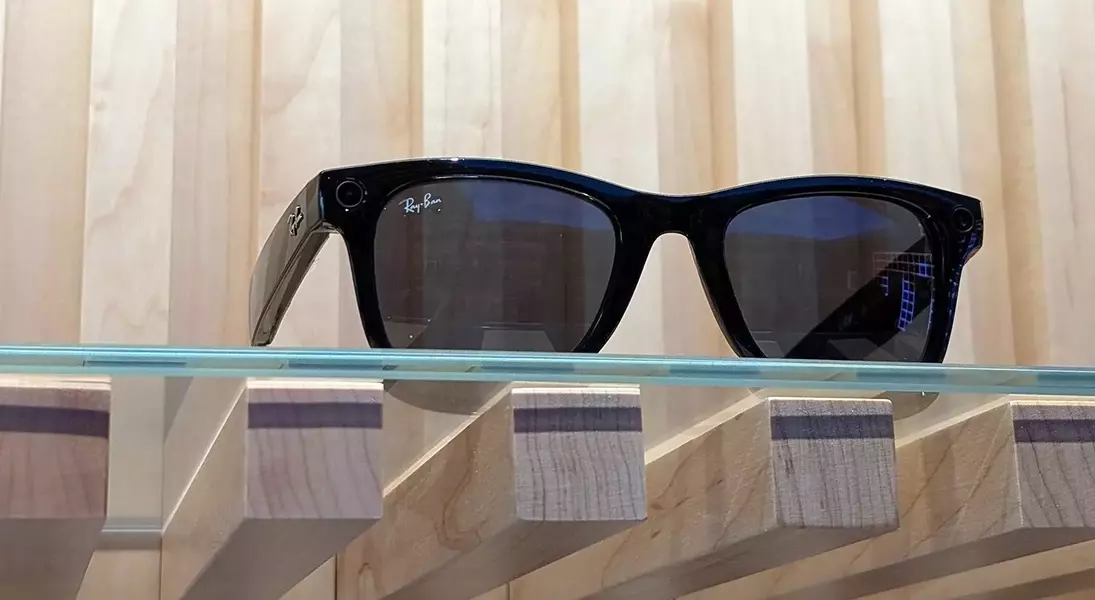Meta’s leadership is making a daring move into the realm of artificial intelligence wearables, with plans to introduce six innovative mixed reality devices this year. This ambitious strategy comes on the heels of the company’s previous struggles with its metaverse initiative, Horizon Worlds. Despite these setbacks, Meta remains undeterred, aiming to revolutionize how we interact with technology through advanced wearable gadgets.
Transforming the Future: Meta's Vision for AI-Driven Wearables
The Evolution of Wearable Technology
The tech landscape has always been defined by waves of innovation, and the latest trend points toward an immersive world of AI-powered wearables. At the heart of this transformation stands Meta, which recently unveiled its plans for a groundbreaking lineup of devices set to debut in 2025. According to a leaked memo from Andrew "Boz" Bosworth, head of Reality Labs, the company is poised to launch multiple AI-enhanced wearables, each designed to push the boundaries of what's possible.These new products are not just incremental updates but represent significant advancements over previous models. For instance, Meta’s revamped Ray-Ban smart glasses now offer enhanced features like transition lenses, while upcoming sports-centric AR glasses, reminiscent of Oakley designs, promise to cater specifically to athletes. The company is also developing glasses with integrated heads-up displays, internally codenamed Hypernova, showcasing Meta’s commitment to delivering cutting-edge technology that seamlessly integrates into daily life.Strategic Focus on Mixed Reality
While Meta continues to explore various forms of wearable tech, the emphasis on mixed reality (MR) devices is unmistakable. Boz Bosworth’s memo underscores the importance of driving sales, retention, and engagement across all platforms, particularly in the MR space. This strategic shift reflects a broader industry trend where consumers are increasingly seeking more practical and versatile ways to engage with augmented and virtual environments.One of the key challenges Meta faces is ensuring these devices deliver meaningful value beyond novelty. To achieve this, the company must address issues such as battery life, processing power, and user experience. By focusing on MR, Meta aims to create wearables that enhance everyday activities without being intrusive or cumbersome. The potential applications are vast, from professional settings to personal entertainment, positioning Meta at the forefront of this technological evolution.Learning from Past Missteps
Meta’s journey into the metaverse with Horizon Worlds was met with mixed reviews, largely due to its lackluster performance and limited appeal. Recognizing these shortcomings, the company is now placing greater emphasis on refining its approach. As Bosworth noted, “Horizon Worlds on mobile absolutely has to break out for our long-term plans to have a chance.” This acknowledgment signals a renewed commitment to creating engaging and accessible virtual experiences that resonate with users.Moreover, the absence of the term "metaverse" in recent communications suggests a deliberate pivot away from the overly ambitious concept of a shared VR universe. Instead, Meta is focusing on tangible, user-centric innovations that can be readily adopted and appreciated. This shift in strategy highlights the company’s willingness to adapt and learn from past experiences, ultimately setting the stage for a more grounded and successful future.Competing in a Crowded Market
As Meta prepares to roll out its new line of AI wearables, it enters a competitive market where other tech giants, including Apple, are vying for dominance. While reports suggest Apple may have shelved its own AR glasses project due to technical challenges, Meta sees this as an opportunity to differentiate itself. By addressing concerns related to processing power and battery life, Meta aims to offer superior solutions that meet the evolving needs of consumers.The success of Meta’s AI wearables will depend on more than just hardware; it requires a seamless integration of software and services that provide real-world utility. The company’s ongoing efforts to develop chatbots and other AI-driven features underscore its dedication to creating wearables that go beyond mere gimmicks. With a clear vision and strategic focus, Meta is well-positioned to lead the charge in shaping the future of wearable technology.Aiming for Greatness in 2025
The year 2025 looms large as a pivotal moment for Meta’s ambitions in the AI wearables space. Bosworth’s memo sets an audacious goal of achieving greatness through relentless innovation and customer-centric design. This vision extends beyond simply launching new products; it involves fostering a culture of continuous improvement and responsiveness to market demands.For Meta, the stakes couldn’t be higher. The success of its AI wearables will not only determine the company’s immediate financial prospects but also shape its legacy in the tech industry. As the countdown to 2025 begins, Meta’s leadership remains focused on delivering transformative technologies that redefine how we interact with the world around us. The road ahead is challenging, but the potential rewards are immense.
